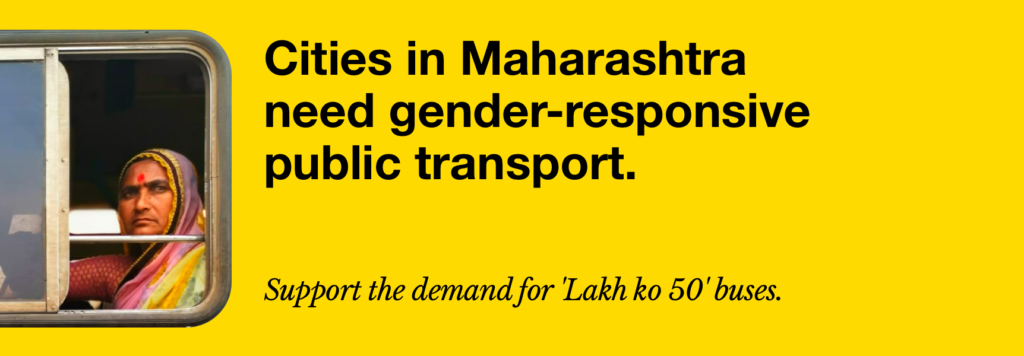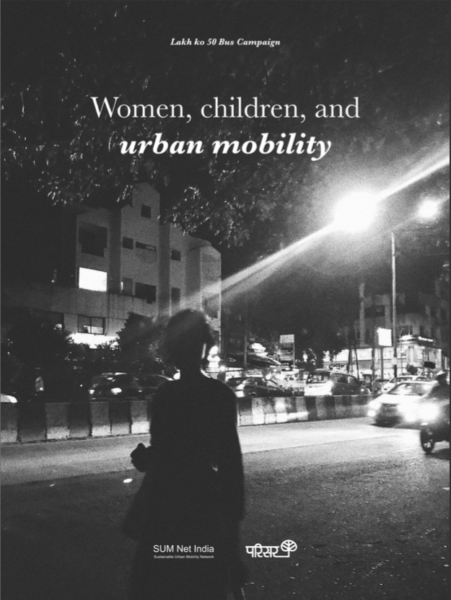
Transportation is the primary connection between women and opportunities for economic independence, and bears a huge impact on women’s empowerment. Cities, while providing children with better opportunities, also have certain negative impacts such as air pollution, lack of independent mobility, inadequate play spaces and lack of safety on the roads.The Women and Child Development (WCD) department at the state level remains the single most powerful and effective body to address the issue and substantially improve women and children’s lives in our cities.
Half the population in Maharashtra is living in cities. Even with 47% of the urban population being female, their work force participation is very low (18.8%). Almost half the women in a study in Maharashtra indicated that they are not allowed to travel freely outside of their community – limiting access to opportunities. Of those who do travel outside their homes, most women depend on walking, bus and train. Women in the state are also spending more time in transit than men, because the same distance travelled by walking or using public transport takes longer to cover. However, the situation is not all bad because the state government has already expressed its willingness to improve urban women’s mobility – by implementing the Tejaswini buses programme, even though it was not successful.

Gender expertise is perceived to be within the domain of conventional women’s departments such as Women and Child Development but they are not usually involved in urban and transportation planning and implementation. We further urge the WCD to include the goal of a safe, comfortable, reliable, accessible and gender-responsive urban transport system within the WCD. The most effective way to do this, would be to:
1. Develop a gender-responsive set of recommendations through extensive consultations with key stakeholders – specifically from women, women’s groups, and groups working on children’s development and welfare – for strengthening urban transport systems, especially bus-based public transport across cities in Maharashtra.
2. Allocate resources from the department meant to ensure the safety and attainment of development goals for women.
3. Gender sensitize transportation workers, and department staff to better understand women’s needs.
4. Champion a State urban bus-based public transport policy that is inclusive of the above-stated goals
Download the full report here
Read the key takeaways from the report here